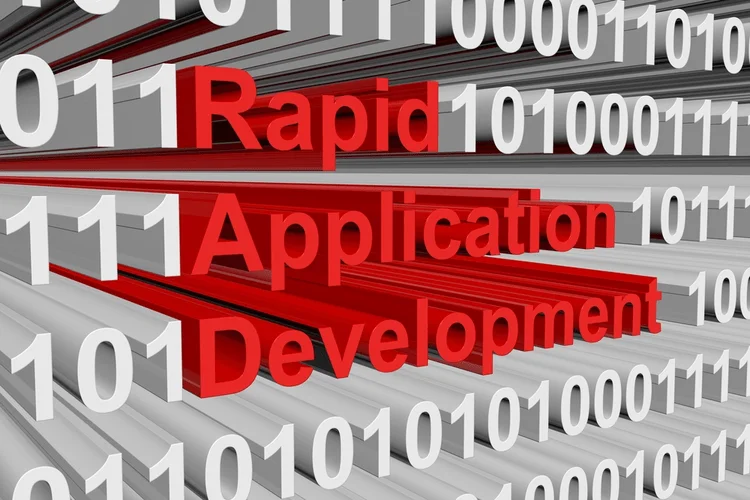Whats The Distinction Between Mongodb And Postgresql?
Our information relies on key factors like architecture, ACID compliance, extensibility, replication, security, and support to call a quantity of. The actual query isn’t MongoDB vs PostgreSQL, however somewhat the best document database vs the most effective relational database. In contrast, MongoDB’s RBAC is concentrated on defining roles and permissions at a broader level saas integration, similar to proscribing entry to particular collections or databases.
Postgres is essentially the most admired, desired database within the final 2 Stack Overflow surveys (2024, 2023. This post is maintained by Bytebase, an open-source database DevSecOps software that can handle each Postgres and MongoDB. To sum up, thus far, we’ve coated the basic particulars of PostgreSQL and MongoDB alike.
Wanting forward, each PostgreSQL and MongoDB are set for growth, with anticipated developments in AI integration, cloud-native architectures, and multi-cloud deployments. As demand for real-time information processing escalates, each databases are more probably to evolve to satisfy these needs. Each databases meet compliance necessities, including GDPR and HIPAA, making them appropriate for industries where security is a prime precedence. In a sharded MongoDB cluster, each shard can be part of a duplicate set, guaranteeing redundancy and excessive availability. MongoDB’s capacity to carry out live resharding—rebalancing data because the dataset grows—eliminates the need for downtime when scaling, which is especially helpful in real-time functions like ecommerce or social media platforms. The live resharding characteristic mechanically redistributes information to keep away from bottlenecks when sure shards become overburdened.
Replication is one other method to scale horizontally in PostgreSQL, where information is copied across multiple servers for load balancing and high availability. MongoDB, being a NoSQL database, leverages documents to retailer knowledge, permitting customers to entry it using MQL. PostgreSQL then again uses an RDBMS structure and SQL to retailer and access data respectively. PostgreSQL shines when storing knowledge from purposes with complex information relationships that require sophisticated queries and joins, similar to monetary methods, data warehousing, and CRM solutions. Initiatives with stringent regulatory necessities due to PostgreSQL’s robust ACID compliance.
MongoDB’s license has prevented3rd get together from offering the MongoDB internet hosting service, and their very own MongoDB Altas is extra polished thanthe equal Postgres hosting choices. As the Stack Overflow survey shows, though Postgres is the most well-liked database amongst all respondents, MongoDBis more postgres vs mongo welcomed by the new learners. MongoDB was recognized to be less dependable as a outcome of it didn’t support ACID transaction semantics in the early days.This has changed since they acquired WiredTiger and use its WiredTiger storage engine. MongoDB shops JSON using its personal invented BSON, while Postgres makes use of a special JSONB format. For these interested, there’s a lengthy discussion round whether or not to choose BSON or JSONB in Postgres.
His ardour to the sphere drives him to create in-depth technical articles related to knowledge business. This means, PostgreSQL can replace each records at the same time, thus reducing the number of errors and maintaining a complete and correct backup as nicely. Expertise the simplicity of information integration with Hevo and see how Hevo helped gas Cure.Fit’s drive for correct analytics and unified data. Regardless of the database you choose, partnering with a third get together for support and steering is a should. Replicate information to your warehouses giving you real-time entry to all of your important knowledge. The major differences between MongoDB vs. PostgreSQL need to do with their techniques, architecture, and syntax.
Informatica Vs Integrateio: A Comprehensive Comparability For Information Integration
MQL is nice for question effectivity, efficiency, and scalability parsing through a considerable quantity of knowledge. Its drawbacks are that it isn’t suited to becoming a member of between paperwork and uses a considerable quantity of reminiscence. SQL is great for joining between tables and is a standardized language that many are familiar with. In conclusion, the choice between MongoDB and PostgreSQL hinges in your project’s specific necessities and priorities.
- With the introduction of multi-document ACID transactions supports atomic operations across a quantity of collections and databases, much like relational databases.
- PostgreSQL utilizes a structured knowledge model and SQL for interaction, storing knowledge in tables interconnected with foreign keys.
- Additionally, MongoDB Inc., the corporate behind MongoDB, offers business assist and coaching providers for users.
- MongoDB’s ability to store complicated hierarchical constructions and assist nested knowledge enables builders to work with dynamic and diverse datasets, offering unmatched flexibility and agility.
One of MongoDB’s core strengths lies in its simplicity and suppleness for querying unstructured or semi-structured knowledge. Because of its doc mannequin, you’ll find a way to easily run queries on nested buildings, without having to worry about predefined schema constraints. ConclusionIn conclusion, MongoDB and PostgreSQL are both highly effective database management methods that offer a wide range of options and capabilities for builders. Understanding the important variations between them can help you make an informed decision on which one to make use of for your particular wants.
PostgreSQL additionally allows you to implement the consumer certificates authentication (CCA) tools as an option, and use cryptogenic features to retailer https://www.globalcloudteam.com/ encrypted data in PostgreSQL. MongoDB can also accommodate use cases that require the quick execution of queries and can deal with a appreciable amount of knowledge. Assessing the efficiency of two completely different database methods is difficult since each MongoDB and PostgreSQL have alternative ways of storing and retrieving the info. Nonetheless, the denormalization process often causes high reminiscence consumption when previously normalized knowledge in a database is grouped to extend performance. MongoDB can cope with both normalized and denormalized information models (also often identified as embedded models). Indexes are objects or buildings that permit us to retrieve particular rows or information sooner.
Challenges Of Utilizing Mongodb & Postgresql
Another example of the difference in terminology and syntax between the two is that MongoDB makes use of paperwork to acquire data while Postgres uses rows for a similar purpose. MongoDB offers group help, tutorials, and, for a price, full training and upgrading under the supervision of a assist engineer. Each PostgreSQL and MongoDB are open-source, offering cost-effective solutions for organizations. However, their help choices differ; PostgreSQL is supported by corporations like EnterpriseDB, while MongoDB provides cloud services via MongoDB Atlas. MongoDB Atlas enhances network safety by deploying devoted clusters in Virtual Personal Clouds (VPCs) to isolate data from public web access.
Mongodb Vs Postgresql: What Are The Key Differences?
In truth, TLS is solely an upgraded SSL of types, created to reduce safety vulnerabilities. Moreover, MongoDB has numerous safeguards to make sure the right authentication of consumer identities. One of the most important elements of the operate of any company is a secure database. With phishing assaults, malware, and different threats on the rise, it’s essential that you just make the right option to maintain your information protected and course of it effectively. Nevertheless, it might be extraordinarily tough to select from the broad range of database solutions available on the market right now.
Its performance scales nicely vertically with hardware upgrades, however horizontal scaling would possibly require more intricate setup. Whereas it supports some level of horizontal scaling, it’s not as best for this construction in comparison with MongoDB. While traditionally seen as less scalable for big knowledge, PostgreSQL has made significant strides in this area. It excels in handling advanced queries and sustaining data integrity, which may be crucial for certain huge knowledge applications. PostgreSQL supports desk partitioning, which helps manage giant datasets more effectively. For analytical workloads, PostgreSQL’s foreign knowledge wrappers allow it to combine with external massive data instruments.

This offers redundancy and protection in opposition to any downtime that might occur within the event of a scheduled break for upkeep or a system failure, thus rising the fault tolerance of the database. Replication is the process of making a duplicate of the identical dataset on multiple server. It permits database directors to provide excessive knowledge redundancy and high availability of data. Since there aren’t any tables in MongoDB, there aren’t any overseas keys in MongoDB both; therefore no foreign key constraints. However, MongoDB does have a DBRef commonplace which helps standardize the creation of the references. PostgreSQL supports extensibility in a quantity of methods, together with stored capabilities and procedures.
By using Binary JSON (BSON), MongoDB holds further knowledge varieties and processes information efficiently. With the info storage flexibility in MongoDB, you’ll have the ability to retailer unstructured, evolving, and dynamic knowledge. One of PostgreSQL’s strengths lies in its assist for extensions and customized capabilities, allowing builders to add options and adapt the database to particular needs. It is especially well-suited for applications that involve geographic data, thanks to the PostGIS extension for spatial queries.

PostgreSQL presents sturdy, multi-layered security measures, making certain data safety at various ranges, making it ideal for industries like finance and healthcare. MongoDB supplies robust, enterprise-grade safety controls throughout numerous layers, ensuring information protection for cloud and on-premise environments. This setup permits MongoDB to deal with tens of millions of users without performance degradation, because the system dynamically adjusts to the rising workload. MVCC ensures that readers can see a consistent snapshot of the database even as other transactions are making adjustments. Essentially, every transaction sees a “version” of the database in the meanwhile it began, unaffected by different concurrent transactions. PostgreSQL excels at managing concurrency through Multi-Version Concurrency Management (MVCC).
Be the first to write a comment.